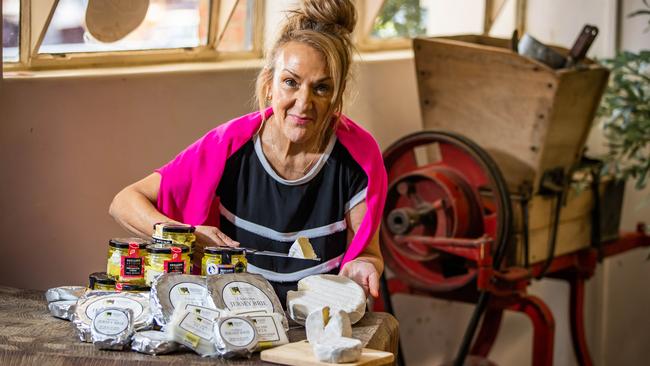European Union trade deal threatens to devastate Aussie cheese
EU negotiators want to strip our producers of naming rights to cheeses such as feta, parmesan and halloumi – and local producers say it could cripple their industry.
SA News
Don't miss out on the headlines from SA News. Followed categories will be added to My News.
Australia’s rich history of making quality, world-class cheese is under threat as the European Union arrives into the country, aiming to strip our producers of naming rights to cheeses such as feta, parmesan and halloumi.
The EU will head Down Under this week and enter free-trade negotiations, hoping to impose “geographic indications” (GIs) protections on Aussie dairy products across Europe, which could cost local producers almost $100m in the first three years.
“The impact of a strict agreement on GIs cannot be underestimated,” Australian Dairy Industry Council chair Rick Gladigau said.
“Forcing cheesemakers to change the name of their product and denying them the right to use their branding due to evoking European heritage is unacceptable.
“The effects of this will be greatly felt when it comes to farmgate prices, demand for raw milk, and the unfair displacement of local Australian producers and quality-made products, putting up to 1000 jobs at risk.”

The introduction of GIs would mean Melbourne cheesemaker George Linguanti, of That’s Amore Cheese, would lose his right to name his products feta, parmesan and halloumi, just like Australian “sparkling wine” can no longer be called Champagne.
Kris Lloyd, of Woodside Cheese Wrights, is concerned the proposed changes will devastate her business.
Ms Lloyd said the EU should have proposed the changes years ago to avoid Australians becoming too familiar with longstanding names.
“Those names are worldwide and people associate them with a product or cheese,” she said.
“As a business, we’re going to miss sales because people won’t know what to look for.”
If geographic indications are imposed in SA, Ms Lloyd estimates it will cost her business tens of thousands of dollars.
“It’ll need a vigorous marketing campaign for people to re-associate cheeses to their new name,” she said.
The EU also wants to go a step further and restrict the rights of cheesemakers to showcase their cultural heritage by banning the use of certain colours, fonts and other branding that it believes could “evoke” European heritage.
Mr Gladigau said many local cheeses had been made in Australia for “generations”, and it was vital we protected our “beloved cheeses and support the cheesemakers”.
“Australia is a multicultural country and our food culture is a pivotal part of our identity that reflects our proud migrant history,” he said. “Many European immigrants have built successful cheese businesses that supply Aussies with great-tasting, nutritious cheese.”




